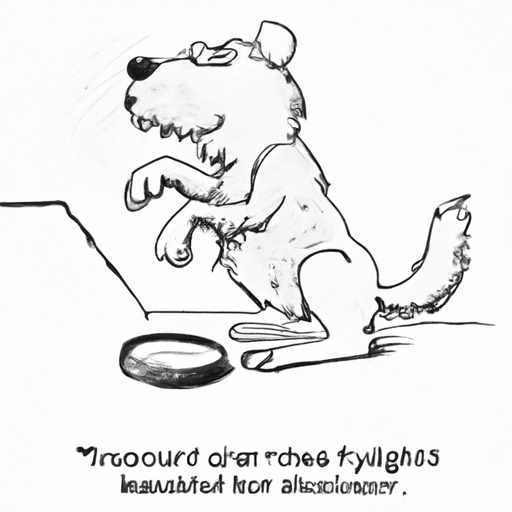Understanding Fleas
Fleas are tiny, agile insects that live by consuming the blood of their hosts. As a caregiver, you have probably encountered these pesky parasites on your beloved pet. They thrive in warm, humid conditions and can jump from one host to another, making it easy for your dog to pick them up.
Fleas have a life cycle that consists of four stages: egg, larva, pupa, and adult. The adult fleas are the ones that cause all the trouble. They bite and feed on your dog’s blood, causing discomfort and sometimes leading to more serious health problems.
How Dogs Get Fleas
You are probably wondering, “How does my dog get fleas?” Well, the process is quite simple yet annoyingly effective:
- Direct Contact: Your dog can get fleas by interacting with other infested animals. This could be during a walk in the park, at the vet, or even in your own backyard.
- Environment: Fleas thrive in warm, humid environments. Your dog can pick up fleas from infested grass, soil, or even your home if it’s humid enough.
- Humans: Yes, you read that right. Fleas can hitch a ride on your clothes or shoes and then transfer to your dog.
Preventing Flea Infestations
Now that you understand how your dog gets fleas, let’s talk about prevention. Here are some steps you can take to keep your dog flea-free:
- Regularly check your dog for fleas, especially after outings.
- Use flea prevention products such as collars, sprays, or topical treatments.
- Keep your home and yard clean and dry to discourage flea habitats.
- Regularly wash your dog’s bedding and toys.
Preventing fleas is easier than dealing with an infestation, so these steps are well worth your time.
Dealing with Flea Infestations
If your dog does end up with fleas, don’t panic. Here are some steps you can take to deal with the infestation:
- Consult your vet: They can recommend safe and effective treatment options.
- Treat your dog: This usually involves a topical treatment or oral medication.
- Treat your home: Vacuum thoroughly and wash all bedding and soft furnishings.
- Monitor: Keep a close eye on your dog and your home to ensure the fleas are gone.
Fleas and Your Dog’s Health
Fleas are more than just a nuisance; they can pose a serious risk to your dog’s health. Fleas can cause:
- Flea Allergy Dermatitis: This is an allergic reaction to flea saliva and can cause severe itching and skin infections.
- Tapeworms: Fleas can carry tapeworm eggs, which your dog can ingest while grooming.
As a caregiver, it’s important to take flea prevention seriously to protect your dog’s health.
FAQ
-
Can my dog get fleas in the winter?
Yes, fleas can survive in warm indoor environments during winter. -
Can fleas live on humans?
While fleas can hitch a ride on humans, they prefer animal hosts. -
Do all dogs get fleas?
Not all dogs get fleas, but all dogs are susceptible to them. -
How long do fleas live?
Without a host, fleas can live for up to 100 days. -
Are certain dogs more susceptible to fleas?
No particular breed is more susceptible, but dogs with allergies may have more severe reactions to flea bites.
Remember, the best defense against fleas is a good offense. Regular checks, preventive measures, and prompt treatment can keep your dog happy, healthy, and flea-free.



